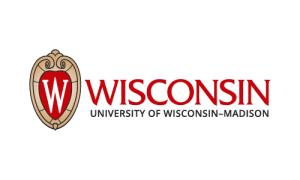University of Wisconsin-Madison’s Carbone Cancer Center conducts breast cancer vaccine clinical trial
UW Carbone Cancer Center is one of three research institutions in the United States participating in a breast cancer vaccine clinical trial and was the first to administer the vaccine to a participating patient.
The trial is testing a novel vaccine, developed by Dr. Nora Disis at the University of Washington in Seattle, designed to prevent the recurrence of triple-negative breast cancer, according to Dr. Lee Wilke, senior medical director of Clinical Oncology Services, UW Health, and principal investigator for the clinical trial at UW Carbone. Triple-negative breast cancer cells lack three different features that are targeted by certain currently available drugs, resulting in fewer treatment options.
“We’re testing this vaccine to determine whether the patient’s immune system revs up to fight cancer cells, whether the cancer cells are there or not in patients with a previously treated triple-negative cancer,” Wilke said. “The primary focus is whether the patients develop an immune response to a DNA-based vaccine that is targeting features of cancer stem cells.”
Triple-negative breast cancer accounts for 10-15 percent of breast cancers diagnosed and tends to be more common in women younger than 40 years old, who are Black, or who have a BRCA1 genetic mutation, according to the American Cancer Society.
It is called “triple-negative” because the cancer cells do not have estrogen or progesterone receptors, and do not make much or any HER2, a protein that helps breast cancer cells grow more quickly, though it is still considered to be an aggressive form of cancer and also tends to recur more frequently than other types of breast cancer, per the American Cancer Society. Hormone therapy and drugs that target HER2 are not helpful in treating triple-negative breast cancer, leaving systemic chemotherapy and surgery as the main options for treatment.
Patients participating in this clinical trial must have had triple-negative breast cancer at stages 1-3 in the last three years and have been curatively treated, according to Wilke.
Dr. Eva Vivian, a professor at the University of Wisconsin School of Pharmacy, matched those qualifications and became the first patient in this trial to receive the first dose of the trial vaccine. She was proud to be part of a trial that could advance preventive medicine, as she is a strong proponent of preventive medicine personally and professionally, Vivian said. Her work includes research on diabetes prevention, especially for the Black community.
“A vaccine that could potentially prevent breast cancer would make such a difference and save lives,” she said.
She was diagnosed with stage 1 breast cancer in October 2019. Following surgery, three months of chemotherapy and additional radiation treatments, she was declared cancer-free.
However, her first experience with cancer came decades before her diagnosis. As a young girl, she watched as her mother was treated for breast cancer when treatment options were much more limited. Still, her mother was successfully treated and was a 20-year cancer survivor until she was diagnosed with colorectal cancer, which she eventually passed away from.
These experiences meant Vivian did not hesitate to join the clinical trial when Wilke asked if she was willing to participate, she said.
“A vaccine that could prevent the development of breast cancer would be phenomenal because it means that women would not have to go through what we went through,” Vivian said.
Vivian is participating in a phase 2 clinical trial, meaning a small group of people participate to test the safety and efficacy of the vaccine. Participants receive an initial series of three injections over the course of three months, followed by one booster three months later, and a final booster six months after the first booster. Vivian receives her injections at the UW Health Clinical Research Unit. She received her first dose on Nov. 17, 2022, and her third shot on Jan. 19, 2023.
Participants will be monitored regularly to see the effects of the vaccine. The trial will expand to more than 30 participants across UW Carbone and the other two sites at Johns Hopkins University and the University of Washington School of Medicine, according to Wilke, who is also a professor of surgery at the University of Wisconsin School of Medicine and Public Health.
This trial at UW Carbone is coordinated by the chemoprevention disease-oriented team, one of several multidisciplinary groups that manage safety measures, pharmacy coordination, eligibility screenings and patient relationships for clinical trials at UW Carbone.
Wilke is proud that UW Carbone was selected to evaluate this novel secondary prevention approach, she said. Vaccine research for cancers is in its infancy, and this trial will
give oncologists an understanding of how vaccines may help augment a patient’s immune system to combat cancer if it returns, she said.
UW Carbone is the lead institution in a consortium of nationally known cancer centers developing potential new cancer prevention agents.
“Eva and UW Carbone could be part of a really important discovery,” Wilke said. “That’s part of what makes clinical trials so exciting and so key to our work to treat and prevent cancer.”
The study is sponsored by the National Cancer Institute Division of Cancer Prevention.

